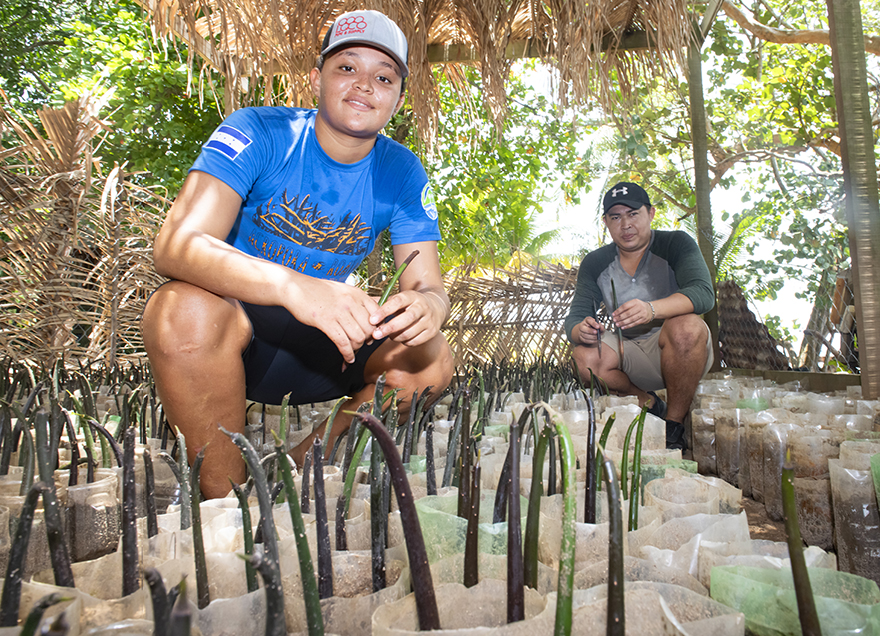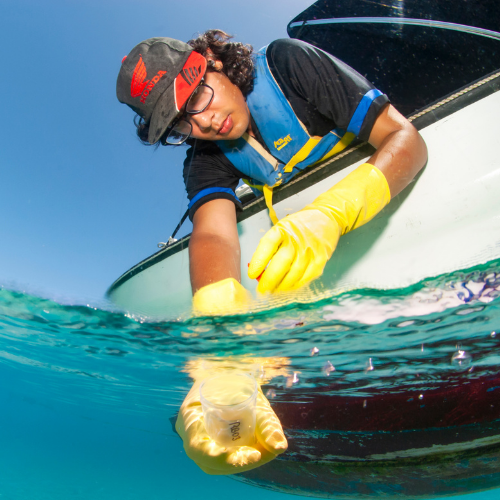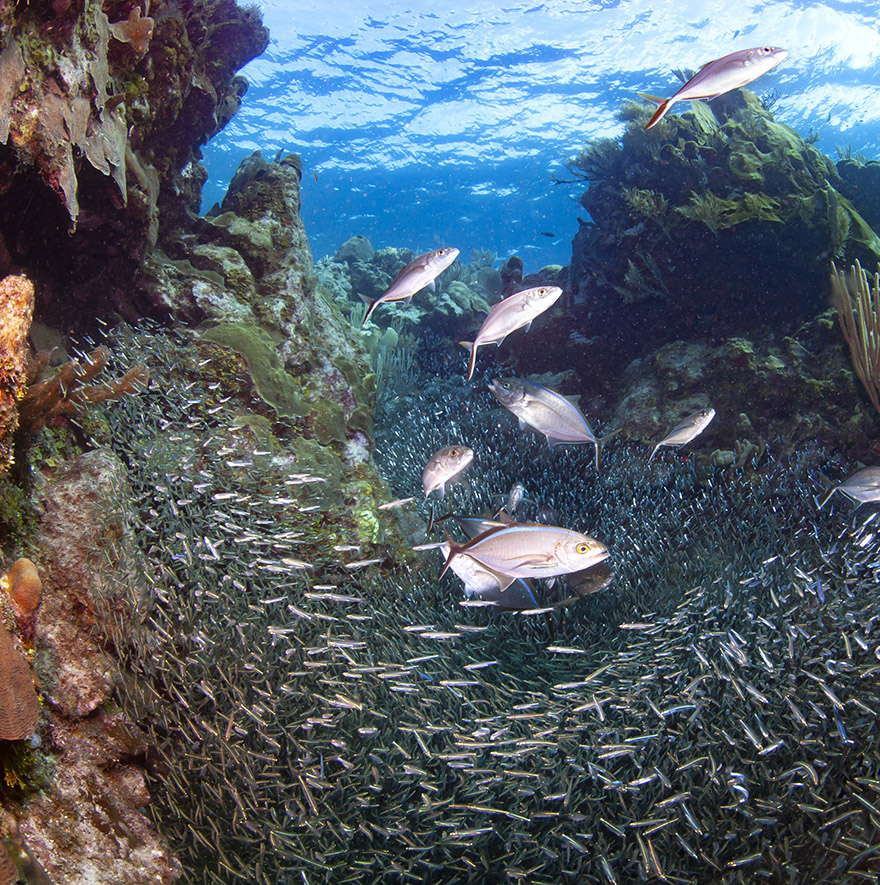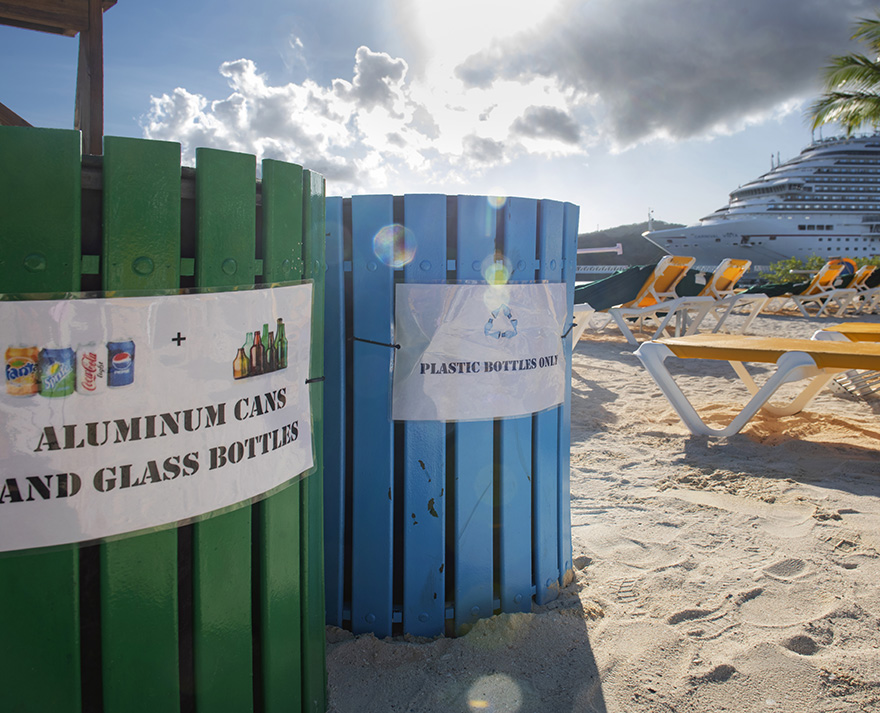
Protecting Shallow Reefs
The coral reefs of Belize stretch for 184 miles across the Mesoamerican Reef. In 1996, UNESCO designated the Belize Barrier Reef Reserve System a World Heritage Site and the health of the reef is under threats of poor water quality, land-based pollution, and unsustainable tourism.
We started collaborating with the Belize Tourism Board (BTB) to expand our coral reef conservation work to Belize City and its surrounding areas. This partnership offers an opportunity to take steps toward reducing water pollution and expanding sustainable tourism programs that protect Belize’s coral reefs.
Scaling local wins
Clean Water
One of our long-term projects in Belize is setting the foundation for the construction of a wastewater treatment system in Caye Caulker, a small island off the coast of Belize City. This could help ensure coral reefs have the clean water they need, similar to what we achieved in West End, Honduras. By partnering with the local community in West End, we operationalized a wastewater treatment system which decreased the amount of bacteria in nearshore waters by more than 99 percent between 2013 and 2020.


Creating Resilient Communities Through Sustainable Tourism
We have bold plans to reshape the perception of tourism in Belize. The communities within Caye Caulker and Belize City are in need of our help to protect their reefs. Currently, we are collaborating with relevant stakeholders to establish a Destination Management Organization. This locally managed entity would oversee different aspects of the tourism destination and safeguard the area’s natural and cultural heritage. As part of that initiative, we are also promoting an educational program for tourism operators, which focuses on ways to teach travelers about conservation.
We have implemented improved management systems for numerous Marine Protected Areas in Roatan, Utila, Guanaja, Trujillo, and Tela Bay. Our intention, and big vision for Honduras, is to connect all North Coast MPAs into a cohesive and regionally integrated biological corridor that protects wildlife along the entire Honduran Caribbean coast.
Monitoring Nearshore Water Quality
We are maintaining the regional water quality monitoring program in Belize that we launched in 2020. Through this program, we have built a network of partners that monitor offshore water quality across 90 sites in the Western Caribbean in order to determine the impact of land-based pollution in high-tourism areas and identify areas that require wastewater and sanitation interventions.
Land-based pollution, often a result of inefficient wastewater management, uncontrolled coastal development, and unsustainable agricultural activities, can bring excess nutrients that spur algal growth. When algae become too prominent on coral reefs, they can block the sunlight that reaches corals (an important source of nutrients) and impact the overall health of the ecosystem and its animals.
